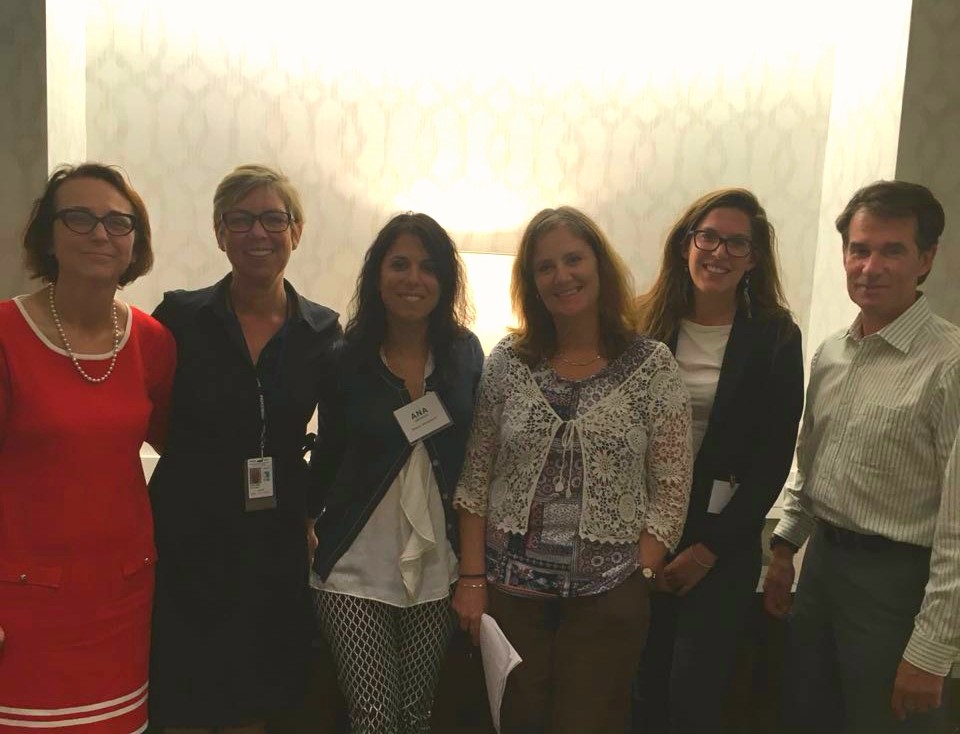The health in all policies approach: An opportunity for Latin America and SALURBAL
Health in All Policies recognizes that many determinants of health outcomes lie beyond the control of the health sector
Posted on
July 12, 2018

From left to right: Sandra Whitehead (National Environmental Health Association), Kira Fortune (Pan American Health Organization), Ana Ortigoza (Drexel University),
Nicole Valentine (World Health Organization, Katy Indvik (SALURBAL Project), and Julian Fisher (Hannover Medical School) at the workshop.
By: Ana Ortigoza, MD, MSc and Katy Indvik, MSc
SALURBAL team members had the opportunity to participate in the training course, “Health in All Policies: The case of air pollution, urban health and sustainability” last month in Washington, D.C. The course was organized by the World Health Organization (WHO), with the collaboration of the Pan American Health Organization (PAHO), the Association of Schools and Programs of Public Health and the National Environmental Health Association(NEHA). The 23 participants represented professionals working in public and environmental health, as well as other disciplines, who shared the desire to generate cross-sectoral dialogue and work together to address the challenges and opportunities presented by the Health in All Policies approach in both academic and practical settings.
Health in All Policies or (HiAP) recognizes that many determinants of health outcomes lie beyond the control of the health sector, and that substantial health gains and the reduction of harmful health impacts can be achieved through the systematic inclusion of health considerations within decision- and policy-making by other sectors, such as transport, housing, education, urban planning, and industry. Promoting healthy cities and communities requires addressing the complex and dynamic network of social determinants of health, while seeking the co-participation of different stakeholders from public and private sectors, in order to co-design public policies that result in mutual benefits across sectors (i.e., the “co-benefit” principle).
Using air pollution as a case study, the WHO workshop highlighted ways the public health sector can emphasize health benefits to promote actions for climate change mitigation and adaptation and maximize co-benefits between these interventions. Presentations also underscored the need to build communication and negotiation skills among health sector and other professionals in order to facilitate effective cross-sector dialogue.
Kira Fortune, PhD, MIH, MA, the regional advisor in Social Determinants of Health at PAHO, presented several examples of the practical applications of the HiAP approach in Latin America and the successes and challenges related to inserting health considerations throughout the political agendas of national and local governments. By encouraging the participation of multiple stakeholders and promoting transparency and accountability via the incorporation of mechanisms for monitoring and evaluation during policy-making and implementation, the HiAP approach can help address health and social inequities and support the strengthening of democratic governance structures.
In this context, the SALURBAL project assumes a strategic role in identifying gaps in decision- and policy-making for urban health across all sectors. Our research will continue to explore the determinants of health and health equity, relevant patterns of morbidity and mortality, and options for improving health in Latin American cities and across the globe. The Health in All Policies approach reminds us to continue to look beyond traditional connections, to more complex, diverse, and system-wide factors that determine health outcomes. This approach and the advances presented during the workshop also reaffirm the pressing need for projects like SALURBAL in supporting an evaluation of the health impacts and effectiveness of policies both within and beyond the health sector.
--
This post was written by Ana Ortigoza, MD, MSc, doctoral fellow at the Dornsife School of Public Health of Drexel University and Katy Indvik, policy officer for the SALURBAL project. This post was written as a contribution to Cities, Sectors, and Health, run by the SALURBAL Project. To contact the blog or learn more about the SALURBAL project email salurbal@drexel.edu